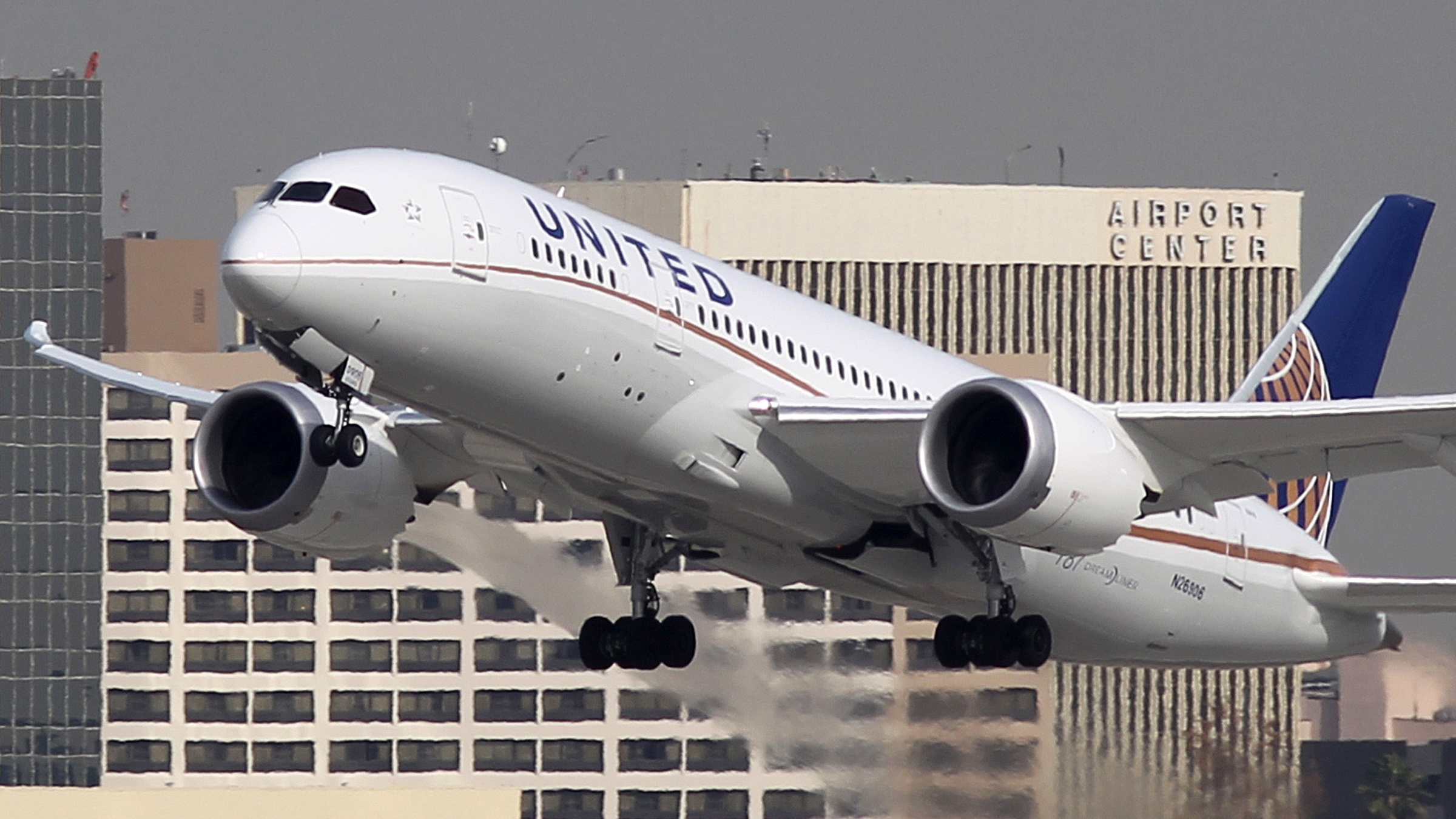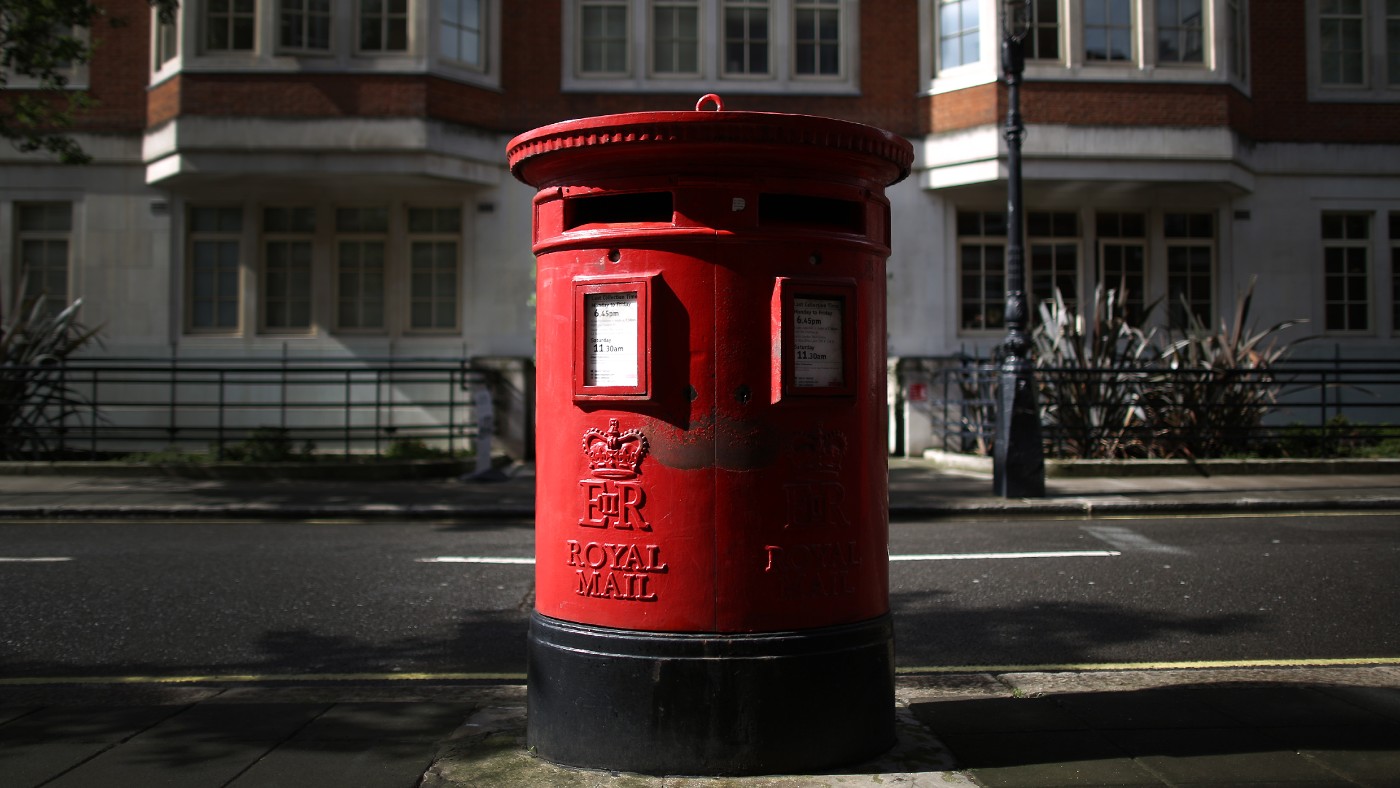5G and planes: the risk to flying examined
Airlines bosses say roll-out of 5G services near US airports risks flights “chaos”

A free daily email with the biggest news stories of the day – and the best features from TheWeek.com
You are now subscribed
Your newsletter sign-up was successful
Ten of the biggest airlines in the US have warned of an impending “economic calamity” ahead of the switch-on of 5G mobile phone services in the country.
Mobile networks AT&T and Verizon have agreed to postpone the expansion of their services in some airports, which were due to be switched on today, as airlines fear 5G signals could disrupt the safety and navigation systems of some planes.
Chief executives of American Airlines, Delta, United, and South West wrote to the White House and air-travel regulators to warn that disruption to commercial air travel would be worse than originally thought, potentially stranding “tens of thousands of Americans overseas” and causing “chaos” for US airlines.
The Week
Escape your echo chamber. Get the facts behind the news, plus analysis from multiple perspectives.

Sign up for The Week's Free Newsletters
From our morning news briefing to a weekly Good News Newsletter, get the best of The Week delivered directly to your inbox.
From our morning news briefing to a weekly Good News Newsletter, get the best of The Week delivered directly to your inbox.
“Unless our major hubs are cleared to fly, the vast majority of the travelling and shipping public will essentially be grounded. This means that on a day like yesterday, more than 1,100 flights and 100,000 passengers would be subjected to cancellations, diversions or delays,” the chief executives wrote.
This is because “dozens” of large airports with “buffer zones” designed to limit 5G interference with aircraft would still be subject to flight restrictions announced by the Federal Aviation Administration last week (FAA), said Sky News.
How could 5G disrupt US flights?
5G, the latest generation of mobile internet connection, relies on “greater use of radio signals” explained the BBC. In the US, the radio signals being used for 5G are part of a spectrum known as C-Band.
A free daily email with the biggest news stories of the day – and the best features from TheWeek.com
The frequencies 5G will be using is close to the ones used by radio altimeters on aeroplanes, which are used to “measure the height of the aircraft above the ground, and also provide data for safety and navigation systems”, said the broadcaster.
Airlines are concerned that interference from 5G transmissions could stop altimeters from working properly, ultimately causing safety issues “particularly when aircraft are coming in to land”.
How big is the risk?
In 2020, The Federal Communications Commission (FCC), which regulates commercial use of the radio spectrum in the United States, studied the question of whether 5G transmitters near airports would interfere with rada altimeters, and concluded “the two systems could work together,” reported The Economist.
The Federal Aviation Administration (FAA), the US body responsible for air travel, however, disagreed and said it could make flying unsafe, as did the RTCA, a body that provides technical guidance for aviators. It published a report warning of the possibility there could be “catastrophic failures leading to multiple fatalities, in the absence of appropriate mitigations”.
As a compromise between the FCC and FAA, temporary 5G “buffer zones” around 50 airports have been established, where 5G providers have “limited their activities”, said the BBC. But the airlines think the buffer zones aren’t enough and “claim the 5G network should not be activated at all within two miles of affected airports”.
However, “most experts sympathise with the FCC” and its position that 5G transmission does not make flying unsafe, continued The Economist. “Similar 5G networks have been deployed in dozens of other countries, and the FAA admitted in November that there had been no reports of problems.”
“It is hard to see how comparatively low-power 5G networks could cause problems when, for instance, much more potent military search radars do not,” it added.
Do other countries have 5G concerns?
Concerns aren’t as great in other countries, because 5G can be rolled out at different frequencies.
“Some countries are using 600 megahertz to 900 megahertz, which isn’t dissimilar to 4G. Some are placing it between 2.3 gigahertz and 4.7 gigahertz, which boosts data speed somewhat. And others are using 24 gigahertz to 47 gigahertz, which requires more towers but offers even higher data speeds,” explained New Scientist. “In many cases a network will use a mix of these,” the magazine added.
In the EU, 5G networks operate at completely different frequencies to those used by aircraft, while in the US the frequency range is much closer, hence the greater risk of interference.
Here in the UK, regulators and airlines aren’t particularly worried. A safety notice published by the Civil Aviation Authority (CAA) in December said “there have been no confirmed instances where 5G interference has resulted in aircraft system malfunction or unexpected behaviour”.
-
 The environmental cost of GLP-1s
The environmental cost of GLP-1sThe explainer Producing the drugs is a dirty process
-
 Greenland’s capital becomes ground zero for the country’s diplomatic straits
Greenland’s capital becomes ground zero for the country’s diplomatic straitsIN THE SPOTLIGHT A flurry of new consular activity in Nuuk shows how important Greenland has become to Europeans’ anxiety about American imperialism
-
 ‘This is something that happens all too often’
‘This is something that happens all too often’Instant Opinion Opinion, comment and editorials of the day
-
 Price of pasta doubles: what food is getting more expensive in UK?
Price of pasta doubles: what food is getting more expensive in UK?feature New data shows skyrocketing inflation in the cost of certain supermarket staples
-
 The great British food shortage: what’s causing empty supermarket shelves?
The great British food shortage: what’s causing empty supermarket shelves?feature Unseasonal weather, transport issues and energy prices are leading to rationing of fresh produce in UK stores
-
 What is misophonia?
What is misophonia?feature New Cate Blanchett film Tár has drawn attention to the little-known but debilitating neurological condition
-
 How advent of King Charles will affect coins, stamps and etiquette
How advent of King Charles will affect coins, stamps and etiquettefeature Many everyday items and traditions will be different under the new monarch
-
 What is the gender housing gap?
What is the gender housing gap?feature Time it takes to get on to the property ladder differs depending on whether you’re male or female
-
 What is aphasia – and what does diagnosis mean for Bruce Willis?
What is aphasia – and what does diagnosis mean for Bruce Willis?feature Film star ‘stepping away’ from acting due to brain condition that affects ability to communicate